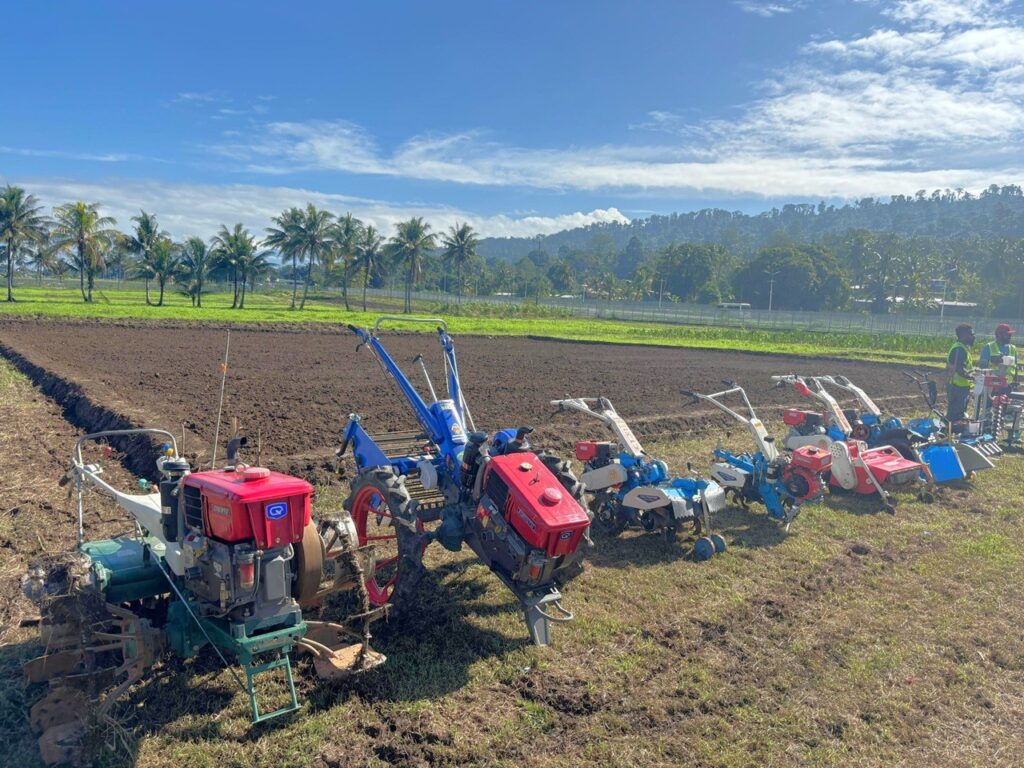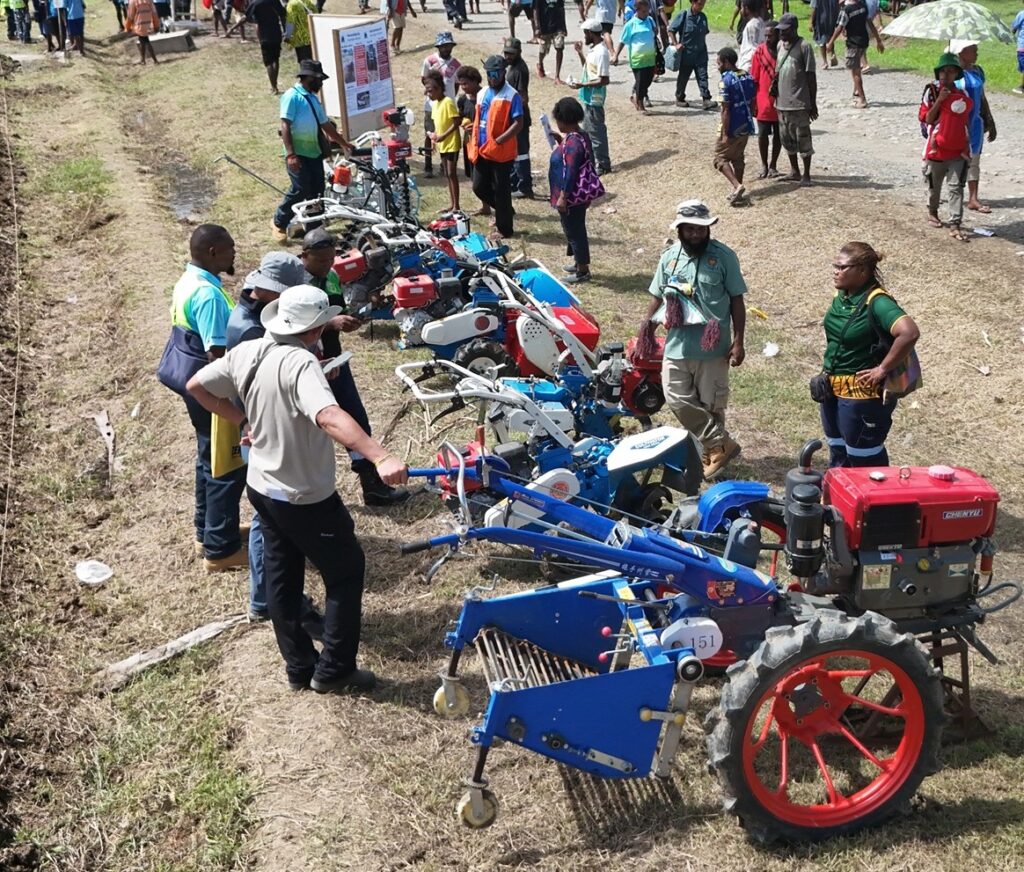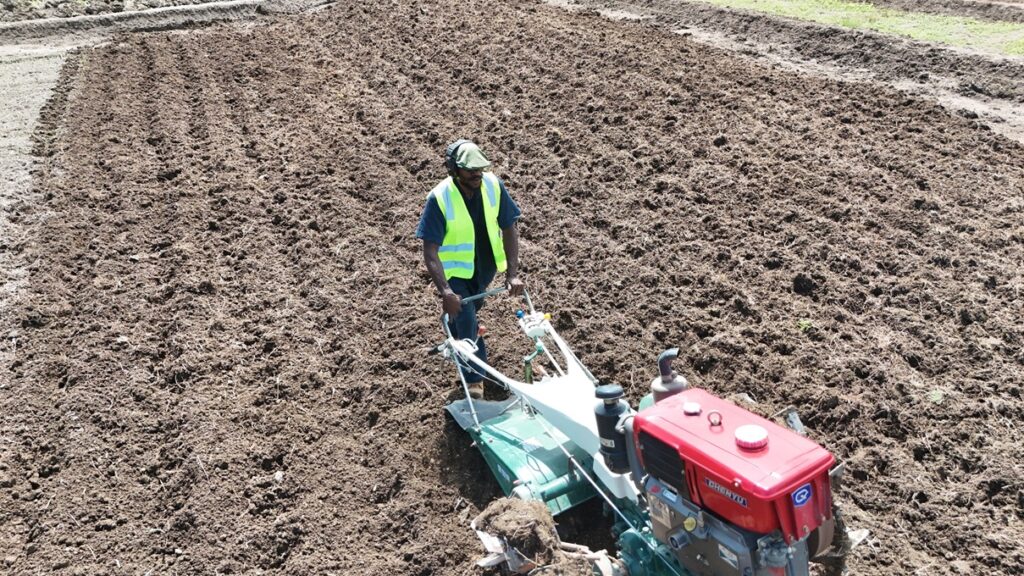Lae, Morobe Province | Wednesday, May 28, 2025 — As Papua New Guinea celebrates 50 years of independence, the National Agricultural Research Institute (NARI) is looking firmly to the future — with mechanisation at the heart of transforming subsistence agriculture into a more commercial, productive sector.
This message was powerfully delivered during the 14th NARI Agricultural Innovations Show held at Bubia, outside Lae, under the theme “Driving Commercial Agriculture through Research and Participation.” The annual event attracted hundreds of farmers, students, agribusiness representatives, and government officials eager to see first-hand how innovation is driving change in PNG’s agricultural landscape.
One of the highlights of the show was the live demonstration of a suite of small-scale agricultural machines, many of which are not yet widely available in the country. These tools were introduced and explained by Stacey Rulete, Mechanisation Officer at NARI Bubia, who emphasised their practical value for smallholder farmers.
“These machines are not here to take away jobs,” Rulete said. “They are here to make farming more efficient and productive — allowing farmers to cover more ground, manage labour shortages, and produce more in less time.”
The machines on display included a paddy field rice planter capable of planting six rows simultaneously, a power tiller for soil preparation, a flail hammer mower for clearing large vegetation, multipurpose cultivators, and a potato digger. Each was described in terms of its specific use, benefits, and adaptability to PNG’s challenging terrain.
“All of these machines were imported from Taiwan under our partnership with the Taiwan Technical Mission,” Rulete explained. “We’ve been working closely with them to trial and adapt these tools to local conditions. The goal is to collect data, evaluate their performance, and recommend them to farmers where suitable.”
Rulete noted that mechanisation is a vital stepping stone toward commercial agriculture in PNG. “We want to help our farmers move beyond subsistence. Field days like this are important because they give us a chance to show real solutions. If we demonstrate their value and train people properly, these machines can transform farming.”


A Tool for the Times
Anton Beko, NARI’s Rice Seed Production Manager, echoed this sentiment, adding that the increasing demands of a growing population make modernisation unavoidable.
“Our traditional tools cannot meet today’s food security challenges,” Beko said. “We need to produce more food on less land and with fewer labourers. Mechanisation is the only way forward.”
Beko focused particularly on the power tiller, a versatile machine he called a “game-changer” for smallholder and semi-commercial farmers. “This one machine can cultivate up to one hectare of land in just eight hours. It works in both dry and wet conditions, using interchangeable wheels and attachments. And beyond cultivation, it can be used to tow trailers — transporting produce like coffee, copra, cocoa, or even carrying inputs to remote gardens.”

He emphasised that this kind of technology has already transformed agriculture in many Asian countries and believes it can do the same in PNG if adopted correctly. “We don’t need massive tractors or million-kina investments,” he said. “These small machines are affordable, adaptable, and effective.”
Beko encouraged rural communities and farmer cooperatives to consider collective ownership models. “Even if an individual farmer cannot afford one outright, a group of farmers can share a machine. Two or three power tillers in a cooperative could make a huge difference.”
Laying the Foundation for PNG’s Agricultural Future
The mechanisation demonstration was one of several key features of this year’s Innovations Show, which also highlighted ongoing research in crop genetics, pest and disease management, sustainable land use, and climate-smart agriculture. NARI’s approach continues to blend science, technology, and local knowledge to empower rural communities.
As PNG commemorates 50 years of independence, the Innovations Show offered a fitting reminder that true independence also means food security, economic self-reliance, and community resilience. Mechanisation — once seen as a luxury — is increasingly becoming a necessity.
“The future of agriculture in Papua New Guinea must be smart, inclusive, and technology-driven,” Rulete said. “It starts with understanding the needs of our farmers and giving them the right tools to succeed.”
The show concluded with strong interest from visiting farmers and agricultural students, many of whom expressed excitement about trying the machines in their own districts.